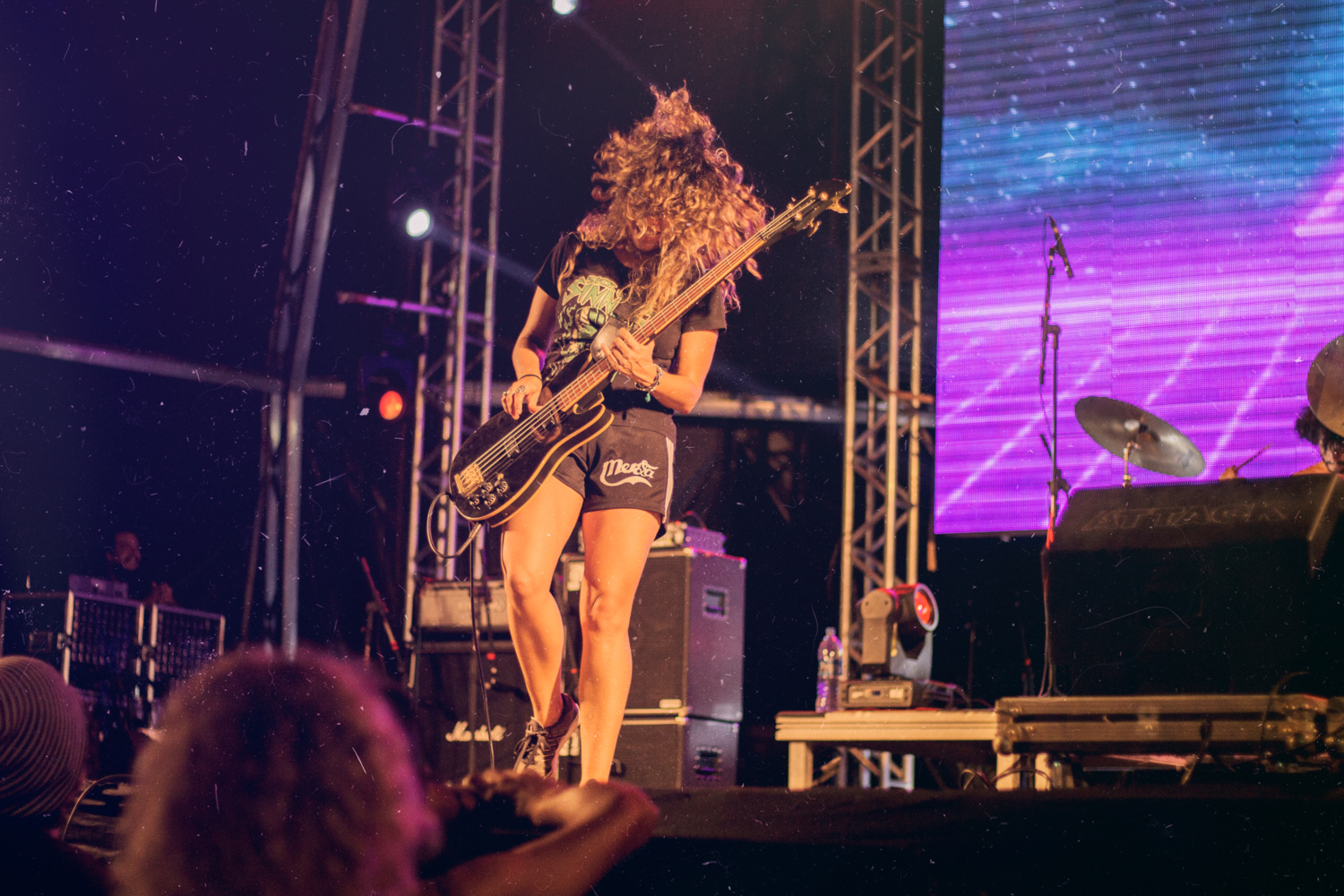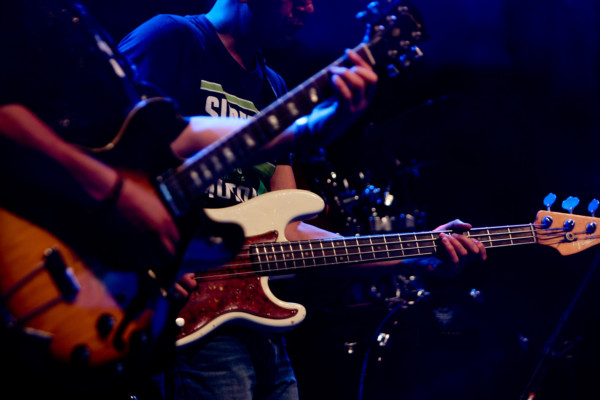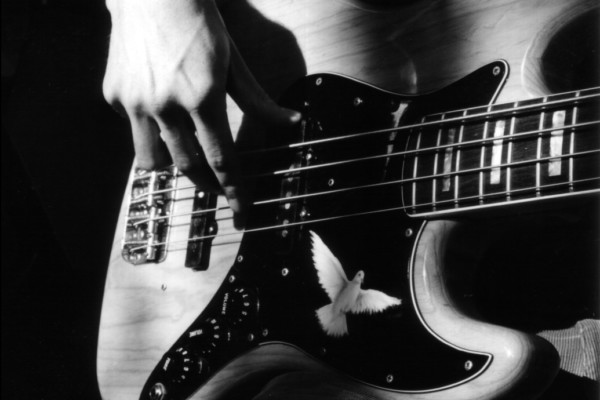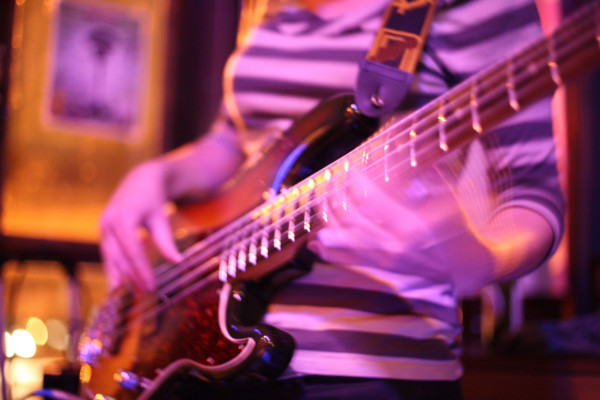The Lightbulb Moment: The Joy Of Inspiration

When it comes to performing, practicing, or even making up your mind to pursue music, there’s no substitute for pure, heart-opening, eye-widening, blood-boiling inspiration. Depending on where you are in your musical journey, the moments of inspiration will take on different forms; they may be few and far between or you may be experiencing a particularly fruitful and creative period while reading this. The longer you find yourself in a relationship with music, the harder it may be to find and capitalize on these moments — the moments when you hear a song and can’t wait to get your instrument in your hands, the nights when you lose track of time shedding, or the performances that make you feel like a rock star. These are the moments that make music especially meaningful, yet they are so fleeting that we often need to be reminded of the power that they yield. In an attempt to “keep the romance,” here are a couple of scenarios that, hopefully, you relate to and respond to in a positive manner.
Before we jump in, I’d like to ask you to read these with an open mind. While some of the scenarios may seem a bit contrived (and you may be wondering, “how can something that happened twenty years ago help my playing now?”) I urge you to take some time to reflect. Reflect on these moments, and particularly on your own versions of them. Revisit the feeling that they gave you. Play the first song you ever learned. Go through a technical exercise that someone showed you a decade ago. Listen to a record that you wore out and remember why it resonated with you. Pick up a bass that you haven’t played in a long time and remember a positive experience that you had while playing that instrument.
Let’s get started!
In the beginning, there was light and there was dark. The house fluorescents have been turned off and after a few moments of nervous energy, the band will take the stage. Boom. Boom. Boom. Boom. What is that person doing? The instrument is bigger than a guitar, but it has fewer strings. They’re laying down a super funky groove and driving the band with the most intense and beautiful sounding low notes. You stop for a moment and think to yourself “I want to do that too.”
That’s right. You just saw someone playing bass and decided that you wanted to be as cool, confident, and positively awesome as that person. Maybe you saw someone playing in your high school jazz band, at a worship service, or at a local club. Maybe you watched the Jaco documentary or “Standing In The Shadows of Motown.” Maybe you were listening to Dave Matthews Band and decided that despite how much fun Carter Beauford seemed to be having, you related more to the grooves of Stefan Lessard. Whatever that initial moment was, it inspired you. You saved up some money, you asked for a bass for Christmas, or you mysteriously found one in your friend’s basement and convinced him to let you take it home. However it happened, you got a bass, and it quickly became the most important possession that you would ever own.
Fast-forward a few months…
It’s about time you’ve got this major scale under your fingers. You’ve played it over and over, slightly increasing the tempo of your metronome every time. Yesterday, you played it at a record high speed. Today, you plan on demolishing that and setting a new record. You start slow, working out the kinks as you go, and can feel the muscle memory kicking in. Phew, made it. You got to yesterday’s tempo, struggled a bit, but finally played it three times without messing up. Crank it up a few more BPMs, and wow! You did it! You broke your own record! Maybe you are getting the hang of this thing…
Fast-forward a few years…
You find yourself in a room with a few other people… it’s loud, you’re perspiring, and you don’t even notice the stench anymore. What you are noticing, however, is that you’re having fun. You’re communicating with your fellow musicians — listening to each other, playing in sync, and smiling at one another when, after a few hours of rehearsing, you finish a song and realize that it sounded pretty damn good. Your core is warm and you are equal parts amped-up and exhausted. You pack up, walk out of the room, and realize that you harnessed a very special and emotive force that almost seems trivialized by being referred to as “music.” You can’t wait to do that again.
Fast-forward a few more years…
You’re finally in a studio. It took forever to get drum sounds, to get that strange buzz out of the guitar, and to actually get a decent take. But you did. And you’re listening back to a performance that everyone in the room is digging. It feels good, you played the right part, and you even snuck in a few signature licks. You’ve breathed life into something: a three and a half minute musical baby that you’re excited to introduce to the world. It is a documentation of your creative aptitude, musical proficiency, and camaraderie with the rest of the band. It is something that you’re proud of.
To be honest, I could go on and on. As a musician, there are so many beautiful and inspiring moments that happen as you grow and develop on your instrument. Sometimes these moments are unassuming — they are between you and your instrument. Sometimes they are part of a collective — a shared experience between you, your fellow musicians, and an audience. Regardless of how and when they happen, or whoever may or may not be there to witness them, the moments are special and inspiring.
When you feel like you’ve hit a plateau, you’re frustrated and ready to give up, or if you’re considering returning to the instrument after a long hiatus, take some time to recall this sense of magic. Give yourself the opportunity to enjoy and express yourself — you may find that it will help direct your next move. While you may not consider it “progress” in the sense that you can play something faster, more technically difficult, or theoretically challenging, relating to music in a positive and loving manner is an important part of maintaining your relationship. Whenever inspiration is hard to find, maybe it’s best to revisit the past, knowing that it very well may keep you going long enough to find more in the future.
Ryan Madora is a professional bass player, author, and educator living in Nashville, TN. In addition to touring and session work, she teaches private lessons and masterclasses to students of all levels. Visit her website to learn more!




Thanks Ryan, Good thoughts to remember.
Who is the performer in the photo?